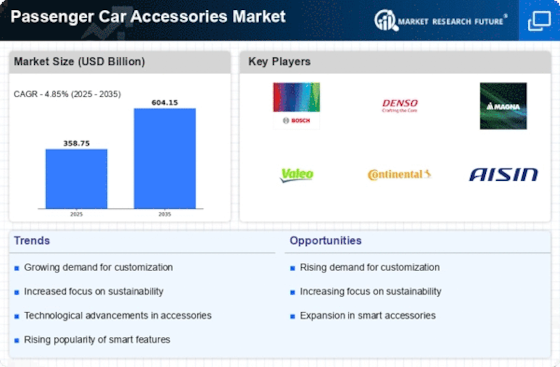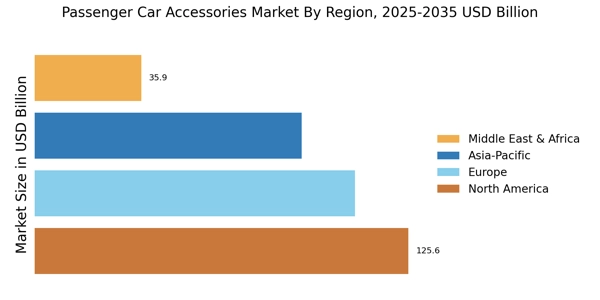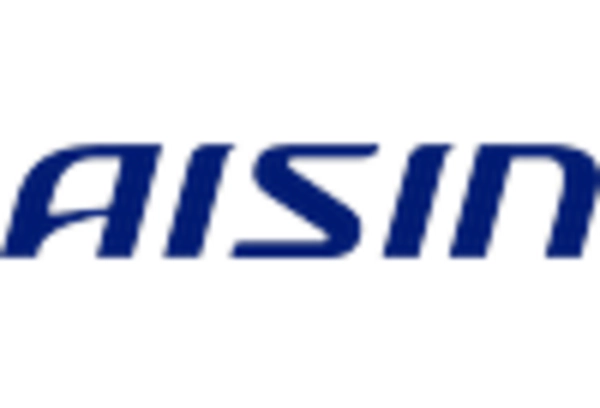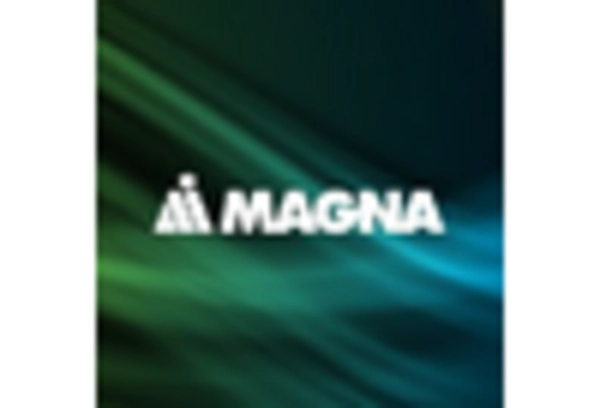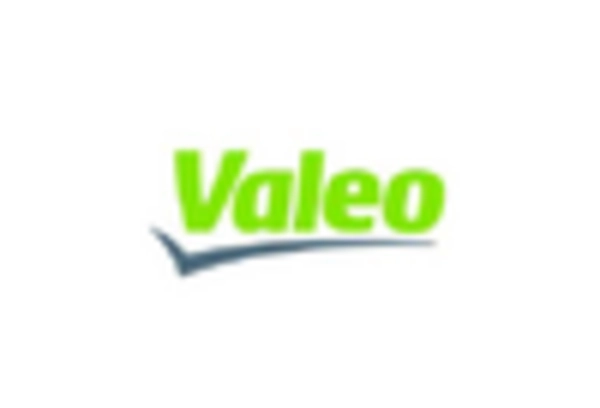The Passenger Car Accessories Market is currently characterized by a dynamic competitive landscape, driven by technological advancements, consumer preferences for enhanced vehicle functionality, and a growing emphasis on sustainability. Major players such as Bosch (Germany), Denso (Japan), and Valeo (France) are strategically positioned to leverage these trends. Bosch (Germany) focuses on innovation in automotive electronics and smart accessories, while Denso (Japan) emphasizes its commitment to environmentally friendly technologies. Valeo (France) is actively pursuing partnerships to enhance its product offerings, particularly in the realm of electric vehicle accessories. Collectively, these strategies not only enhance their market presence but also shape a competitive environment that prioritizes technological integration and sustainability.In terms of business tactics, companies are increasingly localizing manufacturing to reduce costs and improve supply chain efficiency. This approach appears to be a response to the moderately fragmented market structure, where numerous players vie for market share. The collective influence of key players, including Magna International (Canada) and Continental (Germany), suggests a trend towards consolidation, as these companies seek to optimize their operations and enhance their competitive edge.
In August Bosch (Germany) announced the launch of a new line of smart car accessories designed to integrate seamlessly with electric vehicles. This strategic move is significant as it positions Bosch at the forefront of the growing electric vehicle market, catering to the increasing consumer demand for smart technology in automobiles. The introduction of these products is likely to enhance Bosch's competitive advantage by aligning with the industry's shift towards electrification and connectivity.
In September Denso (Japan) unveiled a partnership with a leading software company to develop advanced driver-assistance systems (ADAS) for passenger vehicles. This collaboration is crucial as it underscores Denso's commitment to innovation and safety, addressing the rising consumer expectations for enhanced vehicle safety features. By integrating cutting-edge software with its existing hardware, Denso is poised to strengthen its market position and respond effectively to the evolving demands of the automotive sector.
In July Valeo (France) expanded its production capabilities in North America to meet the growing demand for automotive accessories. This expansion is indicative of Valeo's strategic focus on regional growth and its intent to capitalize on the increasing consumer interest in high-tech automotive solutions. By enhancing its manufacturing footprint, Valeo is likely to improve its supply chain efficiency and responsiveness to market trends, thereby solidifying its competitive stance.
As of October the competitive trends in the Passenger Car Accessories Market are increasingly defined by digitalization, sustainability, and the integration of artificial intelligence. Strategic alliances among key players are shaping the landscape, fostering innovation and enhancing product offerings. Looking ahead, it is anticipated that competitive differentiation will evolve, with a pronounced shift from price-based competition to a focus on technological innovation, supply chain reliability, and sustainable practices. This evolution suggests that companies that prioritize these aspects will likely emerge as leaders in the market.


